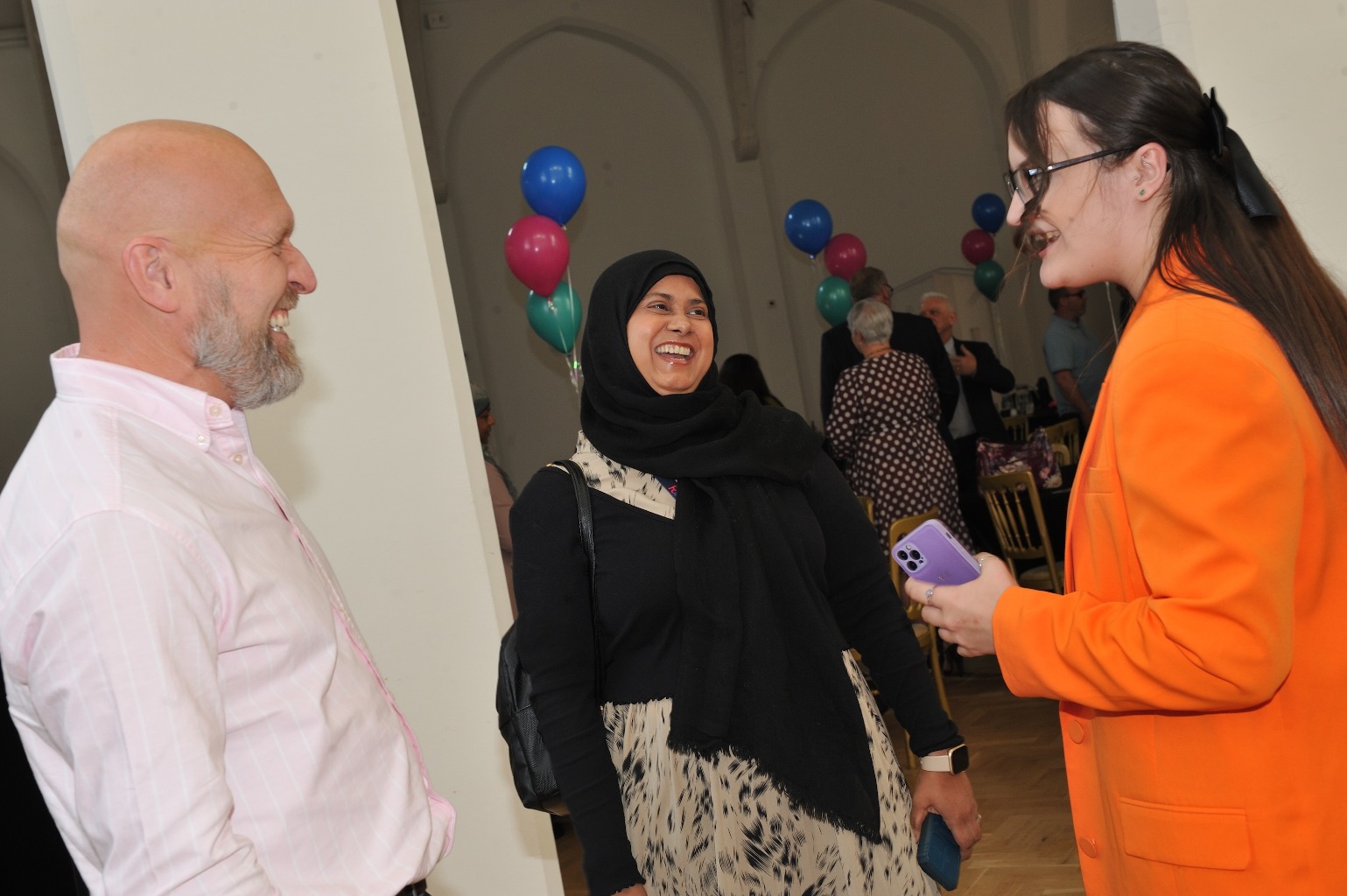We work with a range of organisations to develop teachings and practices on family support for those struggling with addiction.

At The Forward Trust, we know that supporting people through addiction, imprisonment, or homelessness means supporting their families too. It is vital for everyone’s recovery.
Our Family Support Services and Specialist Programmes are built on the understanding that long-term recovery and rehabilitation are more likely when wider support networks – such as parents, partners, children, siblings, and friends – are also involved, informed, and supported.
That’s why we actively seek strategic partnerships with a diverse range of organisations. In partnership, The Forward Trust seeks to co-create – or contribute to – policy, service design and key frameworks that are trauma-informed, family-focused and tailored to the real-world challenges faced by people navigating addiction, imprisonment and homelessness. Working systemically, we aim to address not only the impact of these issues but also how we can prevent them from happening in the first place.
Whether we're working with established national providers, policy makers or emerging organisations with lived experience at their core, our focus remains the same: building a strong and resilient ecosystem of support around the whole family.
These partnerships help us extend our reach and deepen our impact, ensuring that recovery and rehabilitation is not just about the individual, but about healing and strengthening the connections that matter most and supporting future generations.
The Shaping Us Framework is a pioneering initiative launched by The Royal Foundation Centre for Early Childhood (CfEC), spearheaded by Her Royal Highness the Princess of Wales. We are also privileged that HRH The Princess of Wales has been our royal patron since June 2021, when the charity merged with Action on Addiction.
The framework aims to transform public understanding of the critical importance of the first five years of a child's life.
It seeks to raise awareness about how early experiences, relationships, and environments profoundly influence lifelong health and well-being and shapes the adults we become.
In her foreword to the framework, The Princess of Wales emphasised:
“The way we develop, through our experiences, relationships, and surroundings during our early childhood, fundamentally shapes our whole lives. It affects everything from our ability to form relationships and thrive at work, to our mental and physical well-being as adults and the way we parent our own children.”
This statement underscores the framework's core belief that investing in early childhood is essential for building a healthier, more compassionate society.
Read more from The Royal Foundation about their Shaping Us Framework.
The Shaping Us Framework was established to address a significant gap in public knowledge regarding early childhood development.
Research indicates that a considerable portion of the adult population is unaware of how early experiences shape later life outcomes. The framework aims to bridge this gap by providing accessible, evidence-based information and fostering a societal shift towards prioritising early years.
The framework outlines 30 crucial social and emotional skills grouped into six clusters:
Knowing ourselves.
Managing our emotions.
Focusing our thoughts.
Communicating with others.
Nurturing our relationships.
Exploring the world.
These clusters serve as foundational elements for personal development and societal well-being. By focusing on these areas, the framework encourages individuals and communities to support the social and emotional growth of children. It then lays the groundwork for a more resilient and empathetic society.
Katherine Jenkins, Head of Family Support and Specialist Programmes at The Forward Trust, made a significant contribution to the Shaping Us Framework.
As a member of the study advisory group for the framework - working alongside colleagues and subject matter experts from the U.S. and the UK - Katherine shared her extensive experience in supporting families affected by addiction, imprisonment, and homelessness.
The advisory group worked together over an 18-month period to help guide the development of the framework and content. Katherine provided valuable insights into the importance of belonging and whole family approaches, the impact of adversity in childhood on later life and the significance of supportive and nurturing environments on positive childhood outcomes.
In her guest essay for The Royal Foundation Centre for Early Childhood (CfEC), 'Why a Sense of Belonging Matters – Neurodiversity and the Shaping Us Framework', Katherine emphasises that human beings are fundamentally motivated by a need to belong.
This sense of belonging is not just a desire but a critical component of social and emotional skill development for children. It influences our quality of life, including our relationships, employment, and social connectedness.
In the context of the CfEC's Shaping Us Framework, we emphasise the importance of creating environments where every child feels they belong.
This involves recognising and valuing each child's unique way of experiencing the world. For neurodivergent (ND) individuals, this means moving away from a deficit-based model and towards one that appreciates diversity in communication, sensory experiences, and learning styles.
By fostering inclusive environments that celebrate neurodiversity, we can support the development of social and emotional skills that individuals carry into adulthood. This approach not only benefits the individual but also enriches the communities they are part of, leading to a more inclusive and compassionate society.
Read Katherine’s full essay here on the Royal Foundation Centre for Early Childhood website.